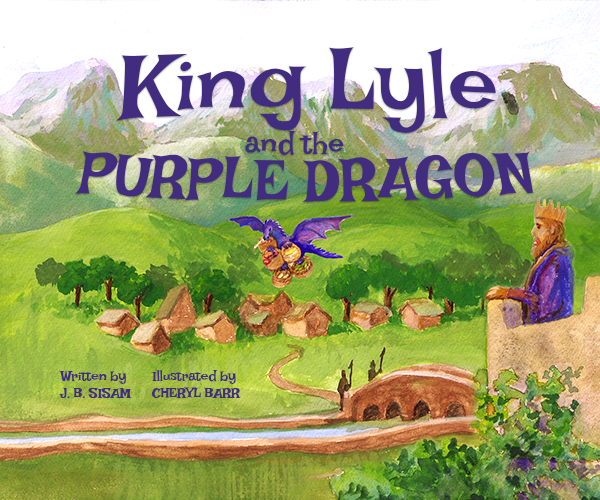Blogging is a fun way to communicate with the world what God has placed on your heart. But I’ve talked to so many people who look at this world of blogging and give up before they even begin.
In today’s episode, I’m going to walk you through how to determine what your blog should be about and who you should be writing for. I”m also going to give you my secret sauce to creating a purpose statement for your blog so you can market the right way.
I started blogging in 2007 on Facebook Notes. Remember those? I transitioned from there to WordPress.COM, a free blogging site. With little to no setup and idea of what I was doing, I published my first post.
Today, I have written several hundred blog posts, written a couple of books, and have recorded nearly 100 podcast episodes. Most of which have happened in the past 3 years. Oh, I’ve also switched from a free WordPress site to a self-hosted site on Bluehost using WordPress.ORG.
Are you ready to begin?
Great!
1. Know your “Why!” and what motivates you?
Starting a blog is akin to beginning your own physical store or even writing a never ending book–on one topic and theme. It’s a lot of hard work, and most people give up before they see any real traction.
There’s this idea of consistency. You need to know who you’re writing for, what you’re writing about, and why you’re writing.
I’m not trying to be a Debby-downer. I want you to realize that you’ll have to put in the time to see the results. I want you to succeed. I want your blog to touch people’s lives. I don’t want you to give up.
This is why we’re starting on a solid foundation.
As writers, we tend to write all over the map. One day you’re writing about the Civil War and the next you’re writing a practical how-to article for Parenting Magazine. Blogging isn’t like that. It’s focused and it needs its own voice.
When a reader arrives at your site, they want to know “why” they should care. Why did you write these words and who are you trying to reach.
Before we get into the technical side of blogging, I’m going to walk you through discovering your “why” for your blog. Who is your audience and why are you writing for them.
2. What topics trip your buzzer?
Today, you’ll be getting clear on what it is that makes you tick. What makes your voice unique, and what are you passionate about?
When it comes to choosing your topic or niche, people take all sorts of paths and ideas. The most common mistake is putting them all into your blog. Now, it’s not bad to try a few different ideas out on your blog, but readers come to expect a certain topic when they arrive at your site.
Now, I will say that most blogging gurus will tell you to find that specific niche and stick to it. That’s not always the best advice, but I wouldn’t put them all in one place–one blog. The goal, in the beginning, is to write. You’ll eventually discover a deeper niche to write about, but the begin with what you’re most passionate about–something you can’t shut up about.
I would start brand on your topic of interest. Here are a few ideas to get your brain activated.
- Parenting
- Writing
- Cooking
- Children
- Local area
- Business
I know there’s more you can think of than this, but think of a broad topic you can write about.
3. What problem can you help solve?
Knowing what you care about is one thing, but knowing what others care about is another ball game. A blog should be more than a place where we write our daily musings. A blog is about helping those discover something new about themselves and showing them how to find it.
So, what problem can you help solve with your blog? What problem does your target audience have that you can solve?
Let’s say you’re passionate about cooking and you’re proficient about making a perfect sunny-side up egg. That’s how you discover the problem to solve. How many people do you know that can flip an egg without breaking the yoke?
You could help people who desire to cook, but don’t know how long to let a pan preheat before adding the butter and egg. You could help those who are struggling at making perfect scrambled eggs instead of burning them into dried foamy pieces.
Once you determine your passion and your proficiency, you can help solve other’s problems because you know the topic inside and out.
4. Write down your Purpose statement for your blog.
Now that we’ve discovered your passion, proficiency, and the problem you’re going to solve, you need to write down your purpose statement for your blog.
One of my favorite bloggers is Michael Hyatt. His whole goal is to be a personal mentor to bloggers and platform builders. For a couple of years, I was a part of his Platform University program. He said that if you don’t know where you’re going, you’ll end up somewhere else.
This is why it’s so important to write down our purpose statement. A blog cannot survive on passion alone, it needs to be clear and succinct in why it exists.
So how do we discover and write our purpose statement? 4 questions to answer:
1. Who are you? This may seem like a silly question, but it’s so vitally important to you as the blogger and to your audience to know who you are.
I cannot tell you how many blogs I’ve been to where the author says something like, “Welcome to my blog. This is my musings. I hope you like it. I write here to process my own thoughts of life.”
Now if that’s the purpose of your blog, then make it for your family only. Please, don’t write a blog like that for your readers, especially if you’re an author of a book.
For me, it was quite simple. My name is Jason Sisam. I am a pastor, professional blogger, and author of two books.
That was it. Make it simple. Make it relatable. Make it reflective of your blog. My blog is for bloggers and writers. So, I made sure that was in there.
Simply say who you are.
2. Who do you help? Remember the one above? What problem are you hoping to solve? This will give you a clue into who you’re wanting to help with your blog. If we don’t know who we’re writing for, we’ll never reach that person.
We need to understand who our Avatar is, not those blue aliens from the movie, but the person you’re targeting for your blog. Put them into a single statement.
Here’s what I wrote. I help new and overwhelmed writers and leaders.
I knew I wanted a blog for bloggers and writers, but I wanted to take it a step further. I want to help people who are just starting out. People who are overwhelmed by all the information out there and get it all in one place. That’s who I help.
3. What do you help them do? This is the critical part of the purpose statement. We need to take who we are with who are avatar is and merge that into what we help them accomplish.
Go back to that Burning need. What are you helping them accomplish? For me, new writers and bloggers are not very focused and are all over the map. So, I am focusing on helping them stay on course. I help new and overwhelmed writers and leaders stay motivated with clarity and tools.
I want them to stay motivated. I don’t want them to give up, so I offer tools to help them get the job done.
4. What is the desired transformation? We need to know what the total outcome should be. Where should they be by the time they’re done with our blog? What’s our end game?
This is the desired transformation we are aiming to instill into our readers. Here’s mine… so they can find their voice and succeed in their family, ministry, and life.
If you follow this template, you’ll have an easy to follow purpose statement of who you are, who you help, how you help, and the desired transformation you bring to your readers.
[reminder]What is your blog all about? Share your blog in the comments, I”d love to see what you’re up to.[/reminder]
Reources in Today’s Episode:
Bluehsot – WordPress.ORG hosting
WordPress.ORG
WordPress.COM
Schecule a coaching call with me!


 Jason (J.B.) Sisam. Best-selling Amazon author of the Christian Early Reader book,
Jason (J.B.) Sisam. Best-selling Amazon author of the Christian Early Reader book, 










LEAVE A COMMENT HERE:
Please note: I reserve the right to delete comments that are offensive or off-topic. Also, this is a clean website, use of any language is not tolerated and your post will be deleted.